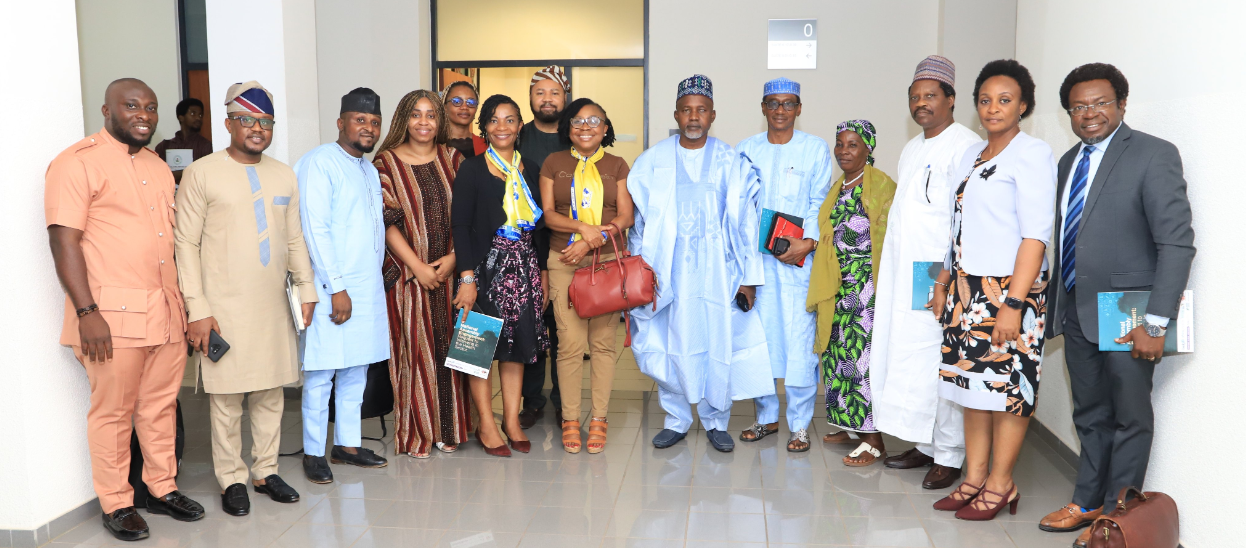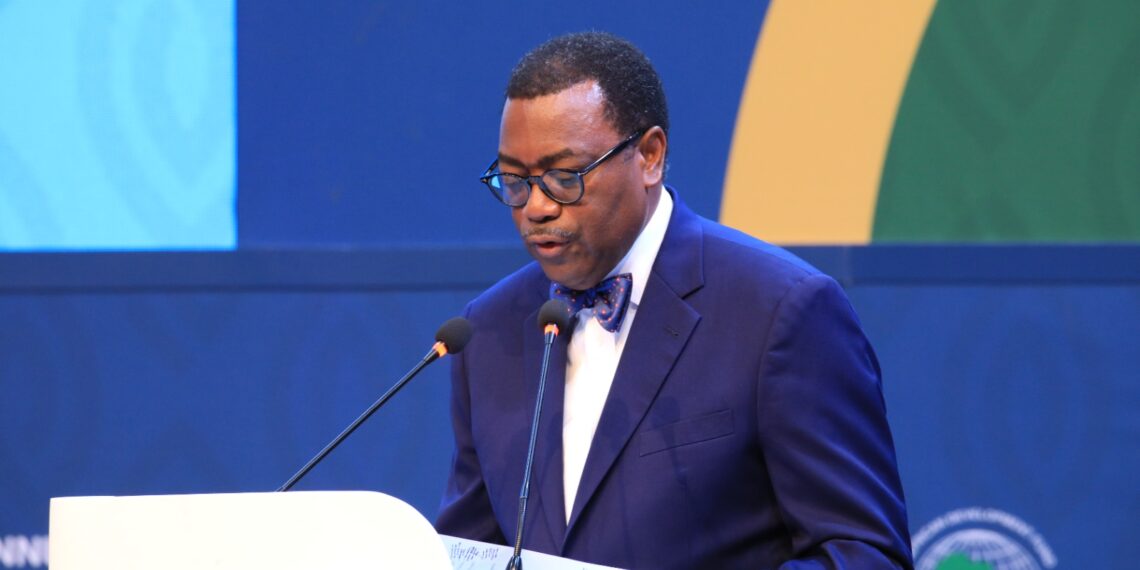
LISDEL, Development Partners, CSOs, Media, Seek Legislative Intervention For Increased Public Investment In The Health Sector In 2023
- BHCPFHealth SectorHealth SecurityLegislature
- No Comment
- 404
The 2023 National Budget laid at the National Assembly by H.E, President Muhammadu Buhari on the 7th of October 2023, is currently undergoing statutory legislative scrutiny, after which a passed revised/amended version will be sent back to the President for assent. With a total budget estimate of N20.5 trillion, for the first time, over N1 trillion was allocated to the health sector with a budget share of 5.75% as against 4.7% in the 2022 Amended National Budget.
While this is a highly commendable development, the 2023 Budget like the previous years’ is still fraught with gaps that could portend threats to the progress being recorded. For instance, while the budget line for Family Planning has been re-introduced, the allocated N20 million is grossly inadequate, viewed against the Country’s population and human development indices, and requirements for stability.
Nigeria’s health sector has been plagued with suboptimal public investment to sustain its development and achievement of key development objectives such as Universal Health Coverage (UHC) and other health components of the Sustainable Development Goals.
Over the last years, appropriation to the health sector in the national budgets has consistently fallen short of the Abuja Declaration of the African Union which recommended 15% allocation of national budgets to the health sector. In addition, healthcare investment per person has been below the recommended N6,000 per capital. This low level of public investment in the sector has contributed to the huge out-of-pocket expense for health by citizens in the country, which currently stands at about 77% of the total expenditure on health.
Access to and delivery of health care services are as a result, grossly inadequate; contributing to low health indices and outcomes, including a huge disease burden in the country. Other outcomes are mismanaged spending contributing to increased poverty rate. These issues raised a cause of concern within the health partners’ space in the country, driven by a commitment to ensure Nigeria achieves its global health goals.
The partners, comprising of the Technical Strategic Group (TSG) of the Legislative Network for UHC in collaboration with Civil Society Groups and Coalitions and the Media engaged the National Assembly to address these concerns.
The LNU-TSG – with the Legislative Initiative for Sustainable Development (LISDEL) as the coordinating secretariat – is a coalition of health donors, development and implementing partners in Nigeria, supporting the legislature towards achieving health development goals, especially UHC, leveraging legislative statutory functions.
Hon. Muhammed Usman, the Deputy Chairman of the National Assembly House Committee on Healthcare Services in the 8th Assembly, led the delegation of concerned partners to the National Assembly.
In his remarks during the advocacy visit to Sen. Dr Ibrahim Yahaya Oloriegbe, the Chairman of the National Assembly Senate Committee on Health and Hon. Dr Yusuf Tanko Sununu, the Chairman of the National Assembly House Committee on Healthcare Services, Hon Usman presented the concerns and requests of the group to the National Assembly. He requested legislative interventions to address the issues which centered on the following:
1. a.) Fulfill Nigeria’s commitment to pay 4 million dollars for Family planning commodities, procurement, and consumables. There have been challenges with releases from the service-wide vote. Nigeria has not fulfilled its commitment level since 2018.
b.) Fulfill Nigeria’s commitment to allocate 1% of the nation’s health budget at all levels for family planning in line with efforts to reduce mother and child death rates in the country.
c.) Increase the Family planning budget line on programs “Improve family planning services through contraceptive use, interventions, and counterpart funding”. The proposed 2023 budget line item is insufficient to deliver on Nigeria’s health agenda.
2. Increase the current health budget, which is proposed at 5.75% of the total national budget (Nigeria’s global commitment (Abuja declaration 2001) is 15%). This is in line with Nigeria’s National Development plan.
3. Keep the 1% minimum BHCPF as a statutory transfer, as provided in the National Health Act and other subsidiary legislations and guidelines. The BHCPF is critical for sustainability towards achieving Universal Health Coverage and RMNCAH+N.
4. Increase the proposed budgetary allocation for polio eradication in the current health budget.
In his response, Sen Oloriegbe expressed his appreciation for the concerns raised and noted that the increased budgetary allocation to the health sector is a result of multilateral and bilateral loan facilities captured alongside other discretionary funds in the health budget.
He reiterated that Nigeria currently runs a deficit budgetary system as a result of scarce resources, hence allocation to various MDAs has to be realistic. He however assured that all the issues raised have been captured by the National Assembly Health Committees and will feature in their reports to be signed subsequently and forwarded to the Appropriation Committees for further legislative actions.
He further noted that the BHCPF is still a statutory transfer but placed under the Ministry of Health. He informed of the ongoing oversight of the Health Committee over the BHCPF Funds from 2019 and 2020 that are yet to be released for disbursement. He clarified that the funds were borrowed funds as at then, since they were not utilized, they were diverted and used for other priorities.
Sen Oloriegbe committed that working with his colleagues, he will work with with all relevant stakeholders to address all the concerns raised as well as resolve issues with the 2019 and 2022 BHCPF disbursements.
Hon Sununu who was particularly pleased with the courtesy call by the partners appreciated the huge support the National Assembly has received from the partners which has greatly improved the outcomes of its statutory functions. This has led to the passage of key quality health bills as well as several impacts made within health MDAs such as upgrade of NAFDAC to ML-3 which is soon to achieve ML-4 with capacity to regulate vaccine manufacture in-country.
He noted that for 2023, the Federal Government has prioritized the 2023 General Elections as well as the National Censors proposed for 2023. These and many other constraints such as the huge debt profile, low purchasing power and fluctuating value of the Naira, contributed to the current level of appropriation which did not only have effect on health MDAs but all the MDAs across all the sectors.
He noted that the low utilization of moneys released to the Federal Ministry of Health and subsequent mop up of unutilized ones have also contributed to the constant low appropriation to the health sector, as the Federal Government approved the release of ALL allocated funds to the Ministry of Health in the 2020 and 2021 Budgets. He advised that the Ministry should show more commitment to improve utilization of funds to make a case to ask for more.
He also committed to ensuring that the BHCPF is implemented appropriately and that all the issues raised by the partners will be addressed.
The partners later had a press conference to sensitize the public on the need to increase and sustain adequate public investment in the health sector.
Contributed by ADEMUYIWA DAMILOLA (LISDEL)





